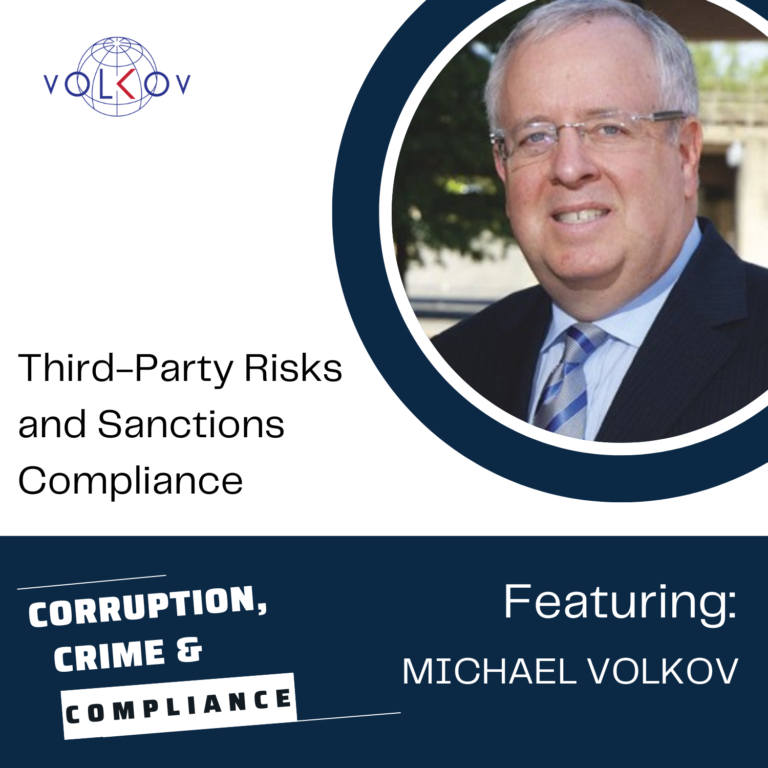With the beginning of the “New FCPA” era coined by DOJ’s Deputy Attorney General Lisa Monaco, we now need to focus on third-party risk and sanctions enforcement. The law, the practice, and the risks are important and not just the same as FCPA legal requirements. As we embark on a new criminal enforcement era surrounding sanctions violations, companies have to address this issue and do it correctly.
In this episode, Michael Volkov takes a comprehensive look at third-party risks from the distribution and supply sides and outlines appropriate strategies to manage these risks.
- Epsilon Electronics serves as a stark reminder of the financial consequences of non-compliance. The company faced an OFAC enforcement action due to a shipment to Iran, resulting in a staggering penalty of over $4 million.
- Apollo Aviation Group settled with OFAC for $210,600 for leasing aircraft engines, which ultimately ended up being placed in to aircraft of a prohibited entity, Sudan Airways, violating sanctions regulations.
- ELF Cosmetics settled with OFAC for $996,000 for importing false eyelash kits containing materials sourced from North Korea, highlighting supply chain due diligence failures.
- The ELF Cosmetics case underscores the crucial role of supply chain due diligence in preventing sanctions violations. Instead of sticking their heads in the sand, companies must undertake basic supply chain due diligence when sourcing products from regions close to high-risk countries or regions.
- “Reason to know” is now the key phrase guiding the New FCPA era. OFAC does not need to prove goods ultimately end up in a sanctioned country. When you see red flags, you must resolve them or they could be considered a “reason to know” in OFAC’s eyes.
- Seven essential elements to boost your compliance program and effectively mitigate third-party sanctions risks include risk assessment, varying levels of due diligence, end-user documentation, monitoring, training, and red flag identification.
Resources:



